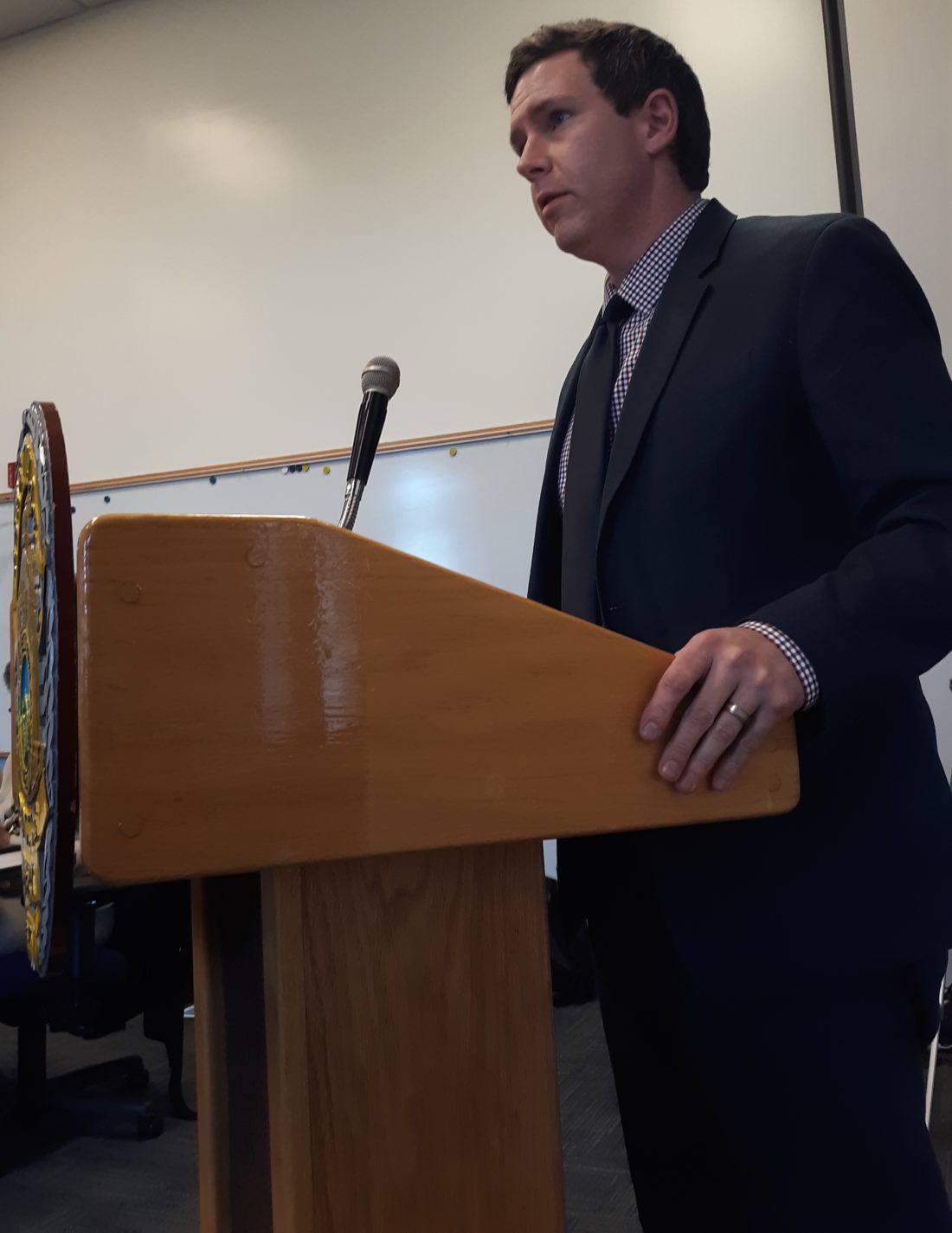Asheville City Council member Keith Young was anything but quiet about a series of alterations to the city’s noise ordinance that came up for a vote on Jan 22. During more than five minutes of remarks on the new rules, he urged his colleagues to view the changes though an “equity lens” before making their decision.
“Don’t just think that this is going to be somebody calling on the phone about a bar down the street or their neighbor next door,” Young said. “This opens up a larger door. I am totally not comfortable opening up a new pathway into our criminal justice system.”
Young objected in particular to one of the proposals, put forward by Senior Assistant City Attorney John Maddux, that would change how the city enforces the noise ordinance. Currently, noise violations are punished with civil penalties, which Maddux said often go unpaid. He suggested that violations instead be charged as infractions, noncriminal offenses that are handled by the county courts and thus carry greater weight.
But Young, who works as a deputy clerk for the Buncombe County Superior Court, said infractions can “snowball” into serious legal problems for offenders who fail to appear for their court date. Council member Sheneika Smith also expressed concern over the higher fee associated with an infraction: $100 plus $188 in court costs, together nearly six times the current $50 civil penalty.
Several citizens who spoke during public comment were skeptical of the changes as well, but for different reasons. Asheville Downtown Commission member and musician Andrew Fletcher criticized the “serious lack of public engagement” on the new rules and emphasized that “one person’s noise is another person’s economic livelihood.”
Meanwhile, Kenilworth resident Martha Salyers questioned the proposed dissolution of the city’s Noise Ordinance Appeals Board, which is currently hearing her neighborhood’s complaint against Mission Hospital over noise generated by industrial heating and cooling equipment. While she agreed with Maddux that the board is “not necessarily a terribly effective means” of resolving complaints, she suggested that it should be reconstituted with acoustics and public health experts to advise Council’s further action on noise problems.
After hearing these concerns, Mayor Esther Manheimer suggested that the proposal “needs a little more marinating,” adding that the city’s ability to analyze ordinances has been hindered by its understaffed legal department. Council member Vijay Kapoor then withdrew his motion to approve the changes.
Vice Mayor Gwen Wisler, who had seconded Kapoor’s motion and said the changes were “well thought through,” asked City Manager Debra Campbell about her interest in undertaking a larger revision of the noise ordinance. In her first policy remarks during a Council meeting since taking the manager post in December, Campbell said she hoped to find a balance between “vibrancy” and “the ability to sleep and enjoy life.”
Campbell said that she hoped to start public engagement around a noise ordinance overhaul “very soon” but warned Council that the process could be lengthy. “With this particular issue, what we want is a sense of reasonableness and clear lines,” she said. “In all honesty, I’m not sure how long it’s going to take.”




I watched the last noise ordinance unfold around 2012. Yuk! This is serious policy.
Moves near a hospital. Then complains about the noise. If you don’t like noise then move to the country.
Makes about as much sense as saying that because someone chooses to live in the country, they should not expect any city services. BTW, those lodging the complaint are not complaining about the routine operation of the hospital. Rather, it has to do with a facility and machinery which was built right on the edge of a long established, historic neighborhood, and involves a problem which could be mitigated with appropriate sound buffering. This is not just some cranky person filing a nuisance complaint. It is an entire neighborhood association representing long time residents. People do not automatically sacrifice any claim to quality of life just because they live within city limits.
Dont like the noise move out of the center of the city. Or get over it.
With that kind of perceptive, insightful and nuanced analysis, I guess we have the answer to the issue. Hard to understand what all the fuss is about now that things have been made so clear.
Evergreen advice. https://mountainx.com/opinion/restless/
LOL is that like saying if you don’t like cigarette smoke then don’t go to a place that allows it? But instead of allowing the market to decide they ban it completely from PRIVATE businesses. And that kind of mentality carries over to other areas as well. But they asked for it and do deserve it. Don’t like something? Just ban it lulz.
Funny thing about many in the neighborhood is their refusal to move. Why would they when they are centrally located. So they’ll whine until they get their way.